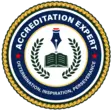Understanding the Regulatory Framework
The Michigan Department of Labor and Economic Opportunity’s Workforce Development (LEO-WD) has statutory powers, duties, functions, and responsibilities regarding establishing and approving non-public institutions incorporating private colleges and universities under the Michigan General Corporation Act (1931 PA 327). Additionally, proprietary schools must be licensed, and LEO-WD must approve their programs.













